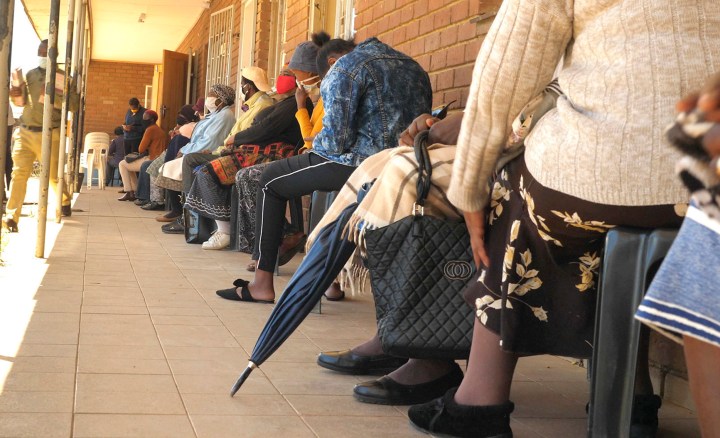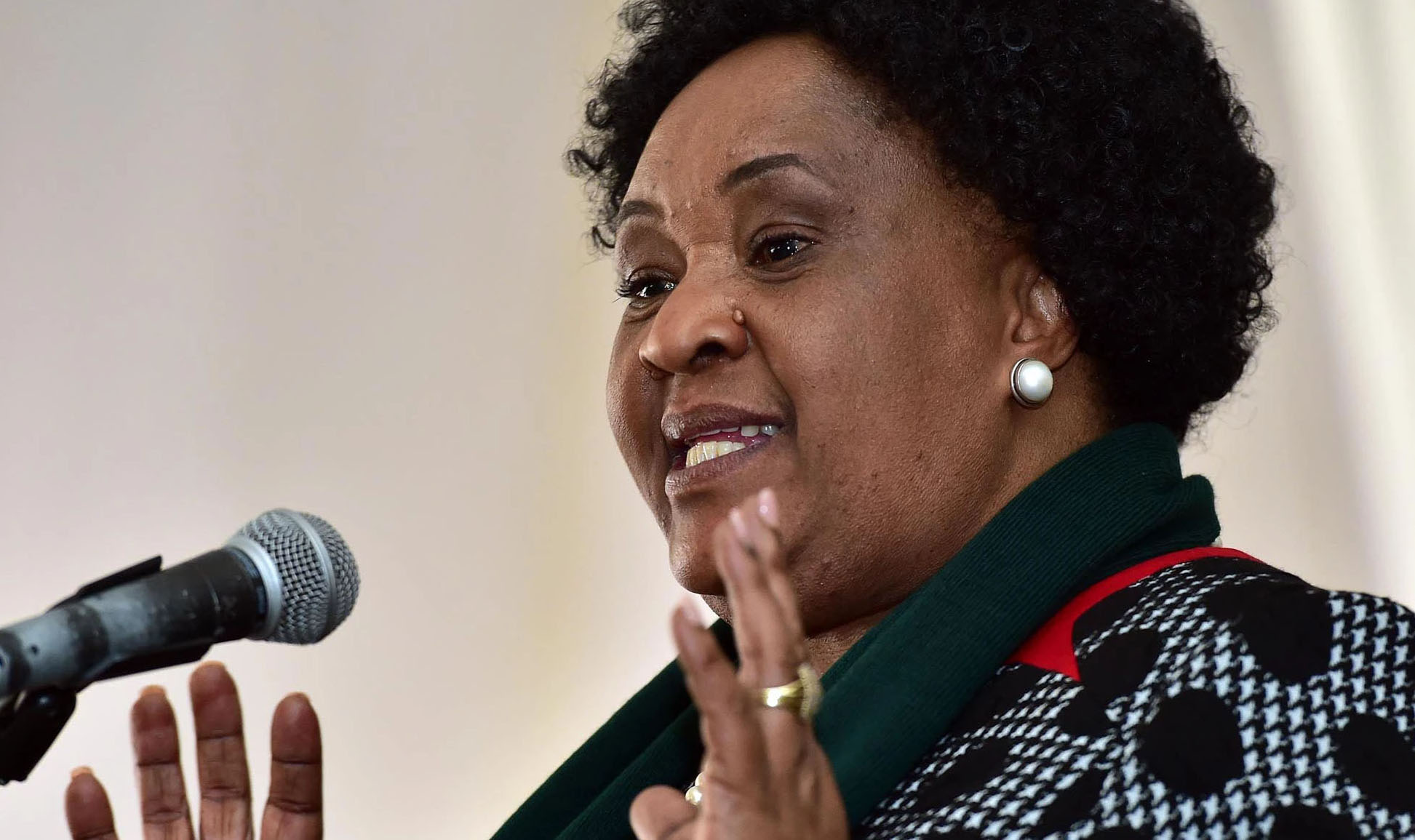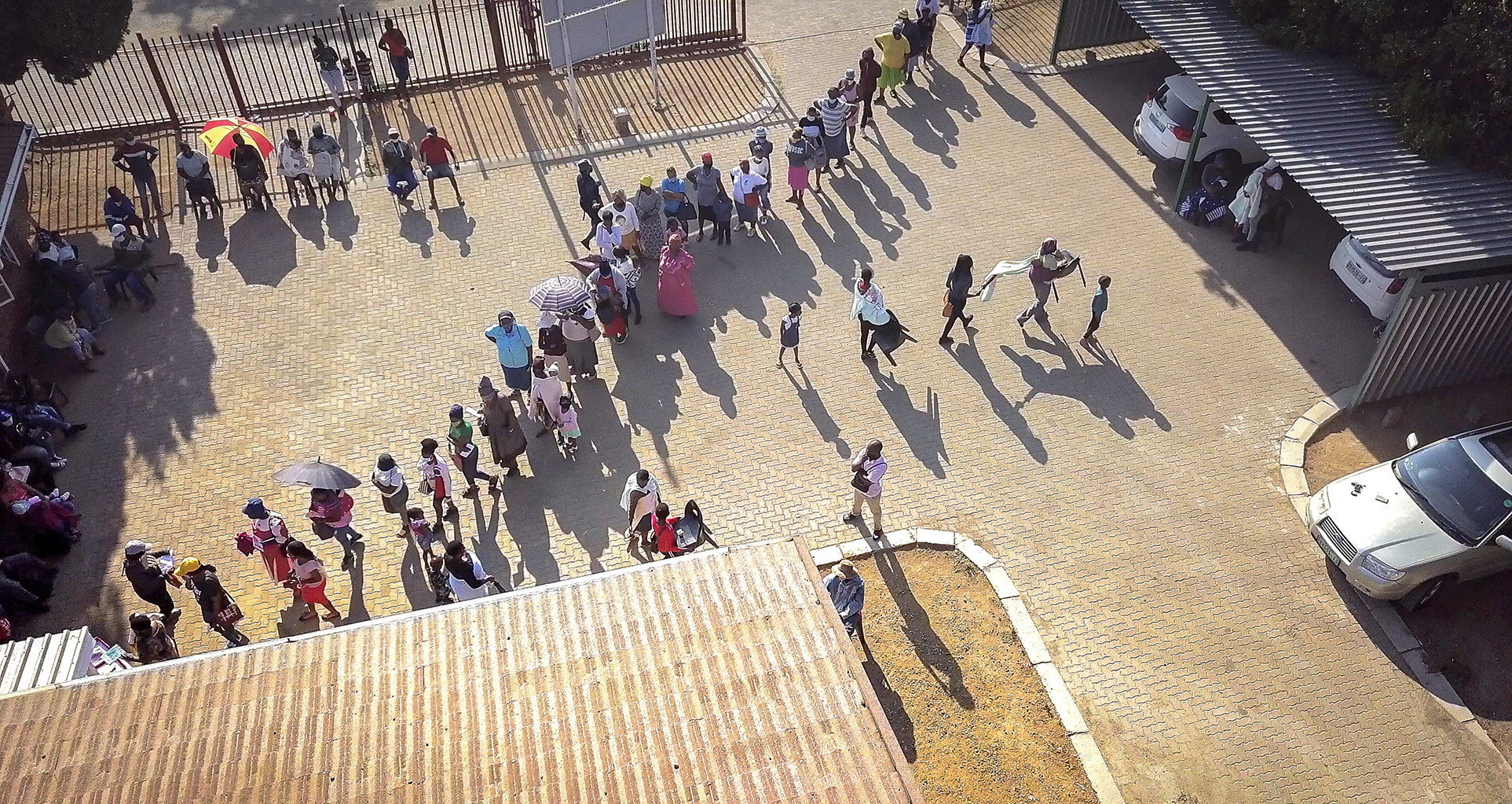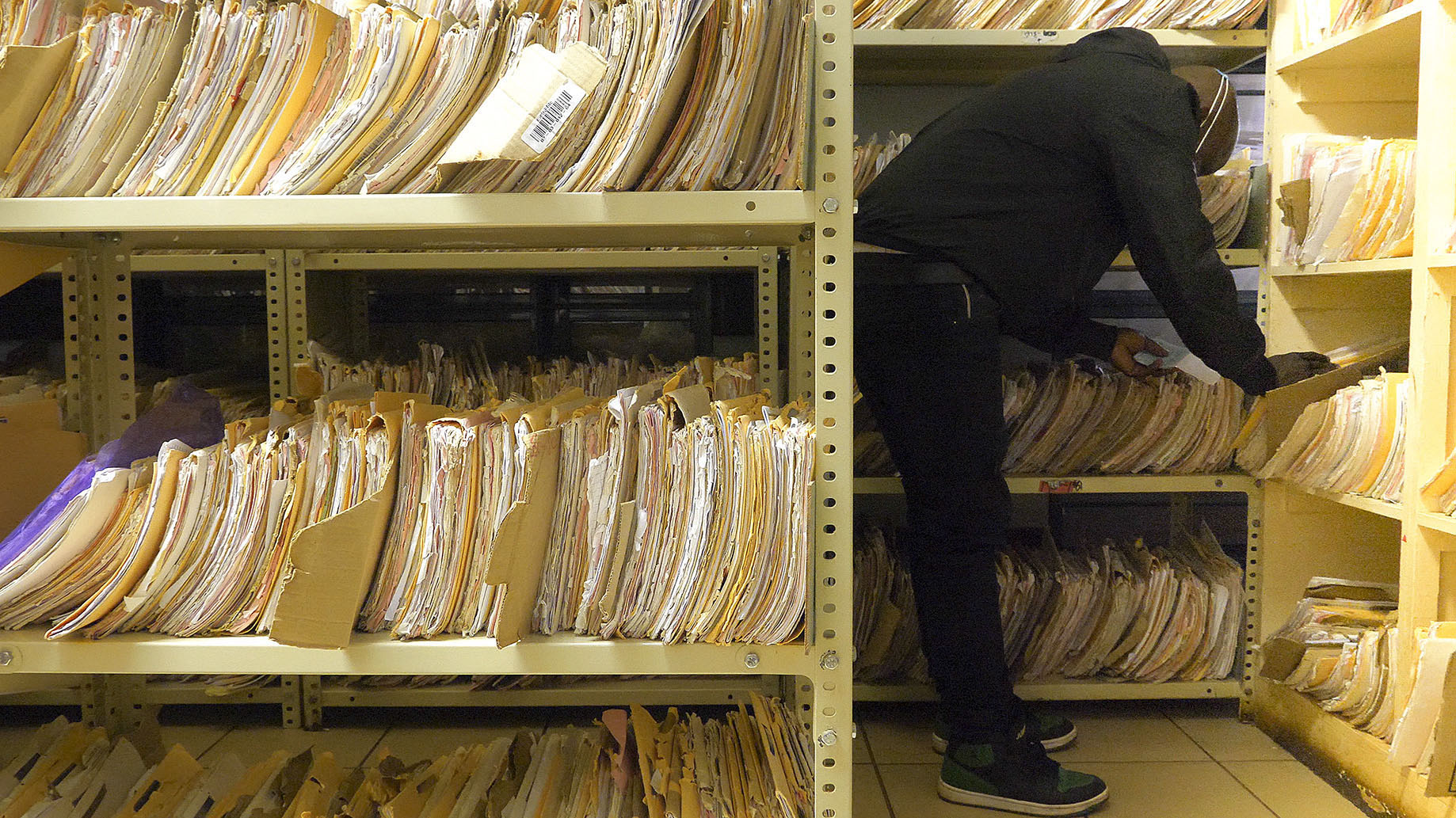SPOTLIGHT
Covid-19 blamed for shortcomings of Ideal Clinics in Free State

There are 83 clinics – down from 153 in 2018/19 - in the Free State with Ideal Clinic Status, meaning they have adequate staff, infrastructure, and medicines, among other things. For many primary healthcare facilities this status is crucial for the National Health Insurance, but some of these clinics still have various shortcomings.
On 23 June, the Free State health department reportedly opened the “first municipal clinic in South Africa which solely operates on solar power and [that] has two 2,500-litre water catchment systems to ensure uninterrupted service”.
Free State premier Sisi Ntombela opened the Parys Clinic in the Ngwathe District. It was built by Sasol on land the municipality made available and the health department furnished it. It is said to have been built based on the Ideal Clinic Model.
Elsewhere in the province, however, many public healthcare users are not so lucky.
There are 218 clinics in the Free State servicing about 2.2 million public healthcare users out of the province’s 2.7 million population. A total of 83 of them have been accredited with Ideal Clinic Status, meaning they have adequate infrastructure and staff, reasonable waiting periods, sufficient medicine and supplies, as well as good administrative processes and adequate bulk supplies. The Ideal Clinic programme “aims to systematically transform all primary healthcare facilities to meet national standards in preparation for National Health Insurance”. The Free State health department’s own figures, however, show that the number of these clinics took a dip in the past few years, signalling some real challenges the province will have to overcome in preparation for the NHI.
Not so ideal
Despite the Ideal Clinic Status, patients at some of these clinics are often left frustrated by staff shortages, long waiting periods and inadequate infrastructure.
Last month, Spotlight visited two clinics in Mangaung – Thusong Clinic and the MUCPP Community Health Centre – which are both accredited as Ideal Clinics. The clinic gates open at 7am. Both are supposed to provide services from 8am until 5pm, but some nurses only arrived at 8am. Between 8am and 10am some of them were catching up and having coffee while patients waited to be seen. It was only at about 10am when both facilities started seeing the first patients.
By then, at Thusong Clinic, one of the health workers informed the queuing people who had brought sick children that they could not be helped because the clinic had been without flu medication for children since 2020.
On the wall there was a note signed by management saying a maximum of two hours of waiting time was allocated, but patients say they usually spend five hours at the facilities.
Covid-19 to blame
According to the chief director of district health services at the Free State health department, Dr Grace London, many Ideal Clinic services in the province have deteriorated owing to the Covid-19 pandemic.

Free State premier Sisi Ntombela opened the Parys Clinic in the Ngwathe District. It was built by Sasol on land the municipality made available and the health department furnished it. (Elmond Jiyane / GCIS)
She says the department’s focus for clinics to obtain Ideal status is the infrastructure, which it was not able to maintain and sustain for two years during the pandemic.
The department was doing its best to ensure quality service continued to be provided at all its primary healthcare facilities.
“When Covid-19 broke out, we faced a challenge where there was no maintenance at clinics for two years. We lost many people who were ensuring the quality of the clinics during that time, which ranged from cleaners and nurses to clerks. We were left with no operational managers and there was a challenge with consumables, meaning medication would be late and could not be delivered to the facilities on time. This left us with a backlog of unavailable medication in facilities. These are just some of the factors that caused us to regress,” she says.
Ideal Clinics: a timeline of the numbers
In November 2015, the first 22 of 222 clinics were accredited with Ideal Clinic Status in the Free State. According to an Ideal Clinic Status report released by the provincial health department, the best-performing district in 2015 was Xhariep, followed by the Mangaung Metro, Fezile Dabi, Thabo Mofutsanyane and Lejweleputswa.
By the 2016/17 financial year, 79 of the 222 clinics assessed achieved Ideal Status. The following financial year, the number climbed to 79. In 2018/19, only 218 clinics were assessed. Of those, 153 achieved Ideal Status. However, by the following year, when Covid-19 hit, the number of clinics with Ideal Status dropped to 94.
Currently, only 83 of the 218 have this status. The best-performing district, Xhariep, has 65% clinics compliant, compared with the worst-performing district, Lejweleputswa, which has only 7% compliant.
London tells Spotlight that all clinics are enrolled and assessed, and those that are excluded are being refurbished and will be included during the next intake.
Explaining the process, she says an Ideal Clinic assessment team from the Office of Health Standards Compliance visits the facilities to assess them. The team comprises operational managers, local area managers and district managers.
“Unfortunately, some clinics in the province will never be able to achieve Ideal Status because of the infrastructure and the size. Often these are clinics that operate from Reconstruction and Development Programme structures, which have been converted into clinics.” These clinics were automatically disqualified because of their size, which could not accommodate the flow of patients.
In November 2021, London gave a presentation to the national Health Department, reflecting on the successes, failures and plans of the Ideal Clinic Realisation and Maintenance programme in the Free State. Overall, she said, the province was performing poorly on patient safety – an Ideal Status area in which many clinics failed. This was mostly due to a lack of security. Spotlight has reported on safety and security at Free State health facilities here.

Long queues at the Bultfontein Clinic in the Free State. (Photo: Rian Horn / Ritshidze)
Other elements clinics performed poorly on included cleanliness and infrastructure, according to reports on patient experiences.
London said the challenges that prevent many clinics from achieving Ideal Clinic Status also include slow supply chain management processes, where there is ineffective contract management for the supply of cleaning equipment and poor quality of equipment. Another challenge was the training of professional nurses, which was being delayed owing to capacity and Covid-19 limitations.
She also noted some of the programme’s successes, including linking patient records to the health patient record system, which now enables “quick file retrieval leading to improved patient waiting time” at clinics. The department had also procured “high-density filing cabinets to improve on patient records filing and retrieval” at 12 clinics in Mangaung and 17 in Fezile Dabi.
Money matters
In the previous financial year, Free State health MEC Motseng Tsiu budgeted R65-million for primary healthcare infrastructure, which was meant for procuring new facilities, refurbishments, upgrading and the maintenance of existing facilities.
Among the facilities upgraded in 2021 was Opkoms Clinic in Mangaung. Yet, a few months later, in May 2022, EFF MP Paulnita Marais flagged several break-ins and security breaches at the clinic during a parliamentary question. Marais wanted to know the extent of the damage caused by the break-ins in the past few months, and assessed by the health department, and why it had placed no security at the clinic despite the break-ins.
In her budget speech in April 2022, Tsiu said it was important to address the backlog of health infrastructure maintenance, and allocated R741.2-million of the R12.7-billion budget to this. This would be used for refurbishments, upgrades and new clinics and hospitals, among other things.
Tsiu acknowledged that half of the primary healthcare facilities in the province “did not meet the threshold to be defined as Ideal Clinics”.
“Prior to Covid-19, we were at 69% compliance. This declined to 43% in 2020 as a result of Covid-19, and we have shown signs of recovery, with an achievement of 54% in 2021/22,” she said.
“The department is committed to ensuring our facilities regain Ideal Status. This we will achieve by making critical appointments, such as operational managers, cleaners and pharmacy assistants. Much of our effort will also go into conducting ongoing maintenance, which has suffered partly because of funds being reprioritised in response to the Covid-19 pandemic.”

According to the Free State health department, patient records have been linked to the health patient record system as part of the Ideal Clinic programme. (Photo: Rian Horn / Ritshidze)
London tells Spotlight that the Opkoms and new Parys clinics are part of the department’s programme to address the maintenance backlog from the past two years.
“They are now both in the Ideal Clinic standard. In fact, the Opkoms Clinic was accredited Ideal Status in November last year, and I am certain that the Parys Clinic will also be accredited after it has gone through the assessment process,” she says.

Free State health MEC Motseng Tsiu. (Photo: IT News Africa / Wikipedia)
According to the DA’s health spokesperson in the Free State, Mariette Pittaway, the Ideal Clinic system is useless and does not serve healthcare users.
“The system is implemented but the services do not improve, because once an ideal status is achieved, they celebrate only on that day and things go back to the way they were before. The department will refurbish clinics, spending millions, and fail to maintain them to keep the status. As a result, clinics deteriorate and continue to offer bad service to members of the community,” she says. DM/MC
This article was published by Spotlight – health journalism in the public interest.



















 Become an Insider
Become an Insider
Comments - Please login in order to comment.